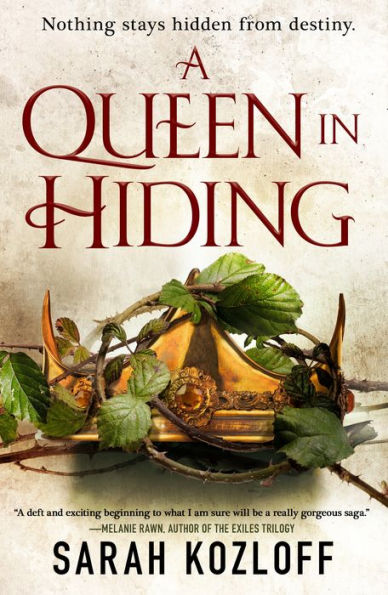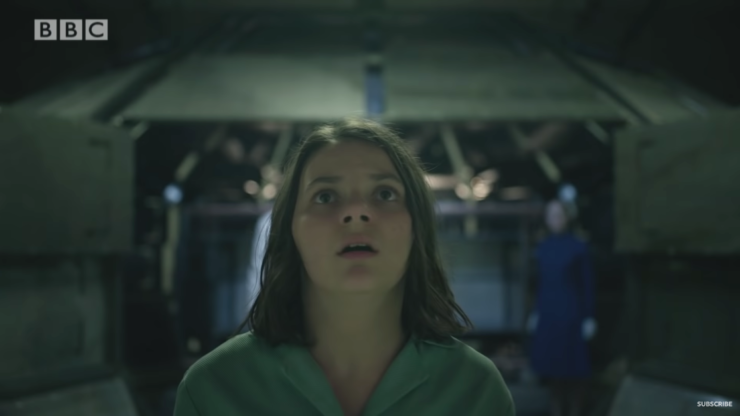One of the most compelling themes in Phillip Pullman’s His Dark Materials series is the way in which he represents childhood as both a sacred time and a space for profound frustration at the complexities of the adult world. It’s one of the most unifying themes across all of children’s literature, and a difficult trick to pull off effectively. It is especially difficult to strike this balance in children’s fantasy, since the magical elements of the world can sometimes serve as deus ex machinae that make the adult world literally less complex. While Pullman’s novels are excellent at giving the reader a limited, childlike perspective on a world that is overwhelmingly complex and adult, the television series, in broadening its perspective, must also account for those complexities. The difference in approach between book series and television series was starkly illuminated in this week’s episode.
As I discussed last week, a great deal of Pullman’s exploration of the frustrations and ignominies of childhood come from the conceit that it is more horrifying to have bad parents than to have none. In particular, Pullman focuses in on Lyra’s fury over being constantly lied to for her own protection. This was highlighted in an argument between Lyra and Ma Costa in this last Monday’s episode:
Lyra: Why? Why am I so important to [Mrs Coulter]? How am I supposed to trust you when no-one tells me the truth?!
Ma Costa: The truth is complicated. Some things, you’re better off not knowing.
Lyra: I am so bored of being told that!
Series writer Jack Thorne expertly captures the maddening feeling of being told that one is not old enough to know the truth. Lyra is no exception to the trope of the curious child protagonist, and, in her assessment, there is no possibility that knowledge could be a burden to bear.
Child readers/viewers likely agree with Lyra, allowing that same outrage at being denied information because they are too young to receive it to parallel the hero’s. Similarly, adult readers of Pullman’s novels likely feel the same. (I certainly did when I first read the books). Insofar as the Northern Lights keeps fairly tightly to Lyra’s perspective, information denied her is also denied to the reader, and so it is easy to want to know more alongside her. But adult viewers of the show are in a different category altogether. The show’s wider lens positions Lyra as an integral part of our understanding of the events as they unfold, but far from the only one. We can get a sense of the world without her; it becomes easier to understand that she is, in fact, not necessarily ready for the revelations she receives.
Immediately after Lyra demands to know what Ma Costa tells her she is “better off not knowing,” the gyptian woman relents and reveals that Mrs Coulter is her mother. She goes on to relate the sordid story of Lyra’s conception and birth. Lyra initially rejects it—after all, the truth is painful and it is better to be an orphan than the child of monstrous mother. But even after accepting the truth of her provenance, Ma Costa divulges the real issue underlying everyone’s reluctance to tell Lyra the truth. The gyptian woman humanizes Mrs Coulter, saying, “Your ma was broken with the shame of it all. It’s why she’s like she is. She was a pariah for years.” This is the unbearable price of knowledge: the inability to maintain a simplistic, black-and-white worldview.
Buy the Book


A Queen in Hiding
The show rewrites the dialog of this revelation to showcase the greater nuance. Compare Ma Costa’s account above of Mrs Coulter’s lack of presence in Lyra’s life and general lack of empathy with the book’s explanation of the same (note that it is John Faa who provides the revelation in the novel): “As for your mother, she wanted nothing to do with it, nor with you. She turned her back. [Ma Costa] told me she’d often been afeared of how your mother would treat you, because she was a proud and scornful woman. So much for her.” Pullman’s description of events leaves Lyra shaken by the truth of her parentage but with no cause to doubt her own conviction that Mrs Coulter is anything besides a monster. The show, clearly, wants us to understand that we cannot so easily dismiss monstrous people as simplistic, mustache-twirling villains.
This is not to say that Lyra must accept Mrs Coulter’s abuse simply because it comes from a twisted place of love. As an insightful commenter on my Mrs Coulter article last week stated:
So many children grow up with abusive parents or neglectful parents. And our society really loves to deny and minimize that. It seems too dark a thing to acknowledge. It’s much easier to write a child as an orphan than to acknowledge that more disturbing truth. But to have a book that acknowledges that with no sugar coating is (perhaps oddly) deeply comforting and validating.
Pullman’s books validate the idea that late-blooming parental love cannot triumph over parental abuse. Lyra is the child of two morally reprehensible people who are, rightly, not redeemed in her eyes by the end of the narrative. But the show also acknowledges that the reality of any situation is always more complex than the necessary solution.
And that is the real poisonous knowledge that is often kept from children: the knowledge that the convictions and decisions that work to keep you safe might not be fully empathetic and just. To protect herself from her mother’s monstrousness, Lyra must (partially) dismiss her mother’s suffering. In the penultimate scene of the episode, Lyra tries to destroy the spy-fly that Mrs Coulter sent after her by flinging it into the sea. Ma Costa finds her and tries to dissuade her from doing so:
Ma Costa: They’re forbidden. Even the Magisterium are frightened of them.
Lyra: She broke the law sending it after me.
Ma Costa: That’s the second reason to keep it. Loving gesture, hateful gesture. It’s a symbol of your mother’s desperation for you, so it should be kept.
To be an adult is to hang on to the physical symbol of your mother’s desperation to have you back, even as you run from her. Where the book commits itself to the understandable idea that a child can only ever understand so much and leaves an intentional gap between what is and what Lyra knows, the show dives into the discomfort of adult understanding and let’s Lyra sit adrift in it, unable to fully comprehend the weight of adult understanding and its disturbing ambiguities.
Tyler Dean is a professor of Victorian Gothic Literature. He holds a doctorate from the University of California Irvine and teaches at a handful of Southern California colleges. He is one half of the Lincoln & Welles podcast available on Apple Podcasts or through your favorite podcatcher. More of his writing can be found at his website and his fantastical bestiary can be found on Facebook at @presumptivebestiary.










